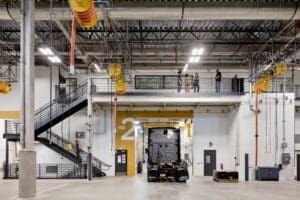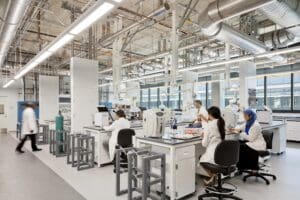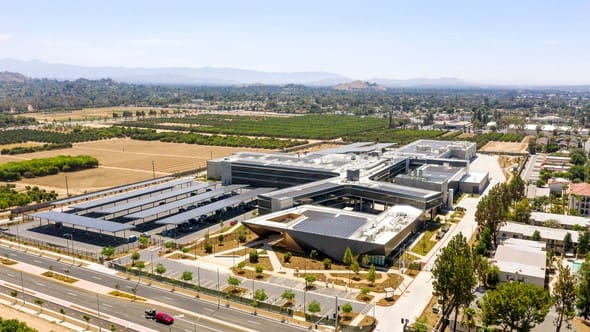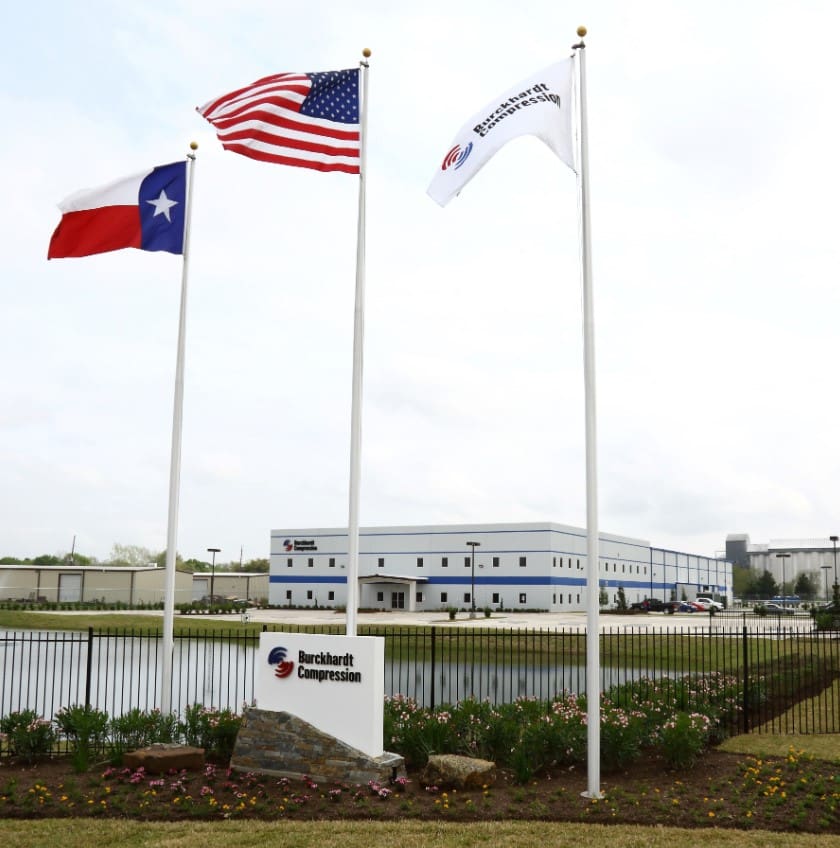The California Air Resources Board (CARB) has opened a new headquarters and laboratory in Riverside, California. The 19-acre campus offers emissions testing capabilities for cars, trucks, buses, motorcycles, small off-road engines, and marine engines; an advanced chemistry lab; a 250-person auditorium; a media center; and administrative space for 460 employees.
The new facility replaces the Haagen-Smit Laboratory in El Monte, California, which served CARB for nearly 50 years. The Riverside facility contains seven light- to medium-duty test cells, and three test cells large enough to accommodate the largest heavy-duty trucks and buses. With vehicle technologies rapidly changing, it was also designed to accommodate new test methods for future generations of vehicles and ensure emissions compliance with increasingly stringent standards.

The new facility also includes an expanded chemistry lab to analyze motor vehicle exhaust emissions, evaporative emissions, and transportation fuels samples. Instrumentation will provide data to evaluate the toxicity, reactivity, and climate change impacts of motor vehicle emissions; assess the effectiveness of control technologies; improve the emissions inventory for specific components of motor vehicle emissions; and enforce California’s Clean Fuels specifications.
Sustainability drove the design of the campus. The facility achieves Leadership in Energy and Environmental Design (LEED) Platinum certification, meets or exceeds California Green Building Standards Code Tier 2 standards, and is designed to meet zero net-energy performance. At 402,000 square feet, including high energy usage laboratories, it is designed to be the largest zero energy building in the United States. To achieve the highest levels of sustainability, the facility includes energy-saving methods such as chilled beam HVAC in the office areas, a building management system that monitors the building’s vital operations for problems and to maintain its “green” efficiency, and solar arrays throughout to supply at least 3.5 MW of electricity, among other features.
The cost of the new facility is US$419 million, which includes US$108 million for specialized laboratory and testing equipment, approved by the Legislature in 2016. Of those costs, US$154 million came from fines paid by Volkswagen for air quality violations related to the diesel car cheating case. Additional funds came from the Motor Vehicle Account, the Air Pollution Control Fund, and the Vehicle Inspection Repair Fund.

The land on which the campus sits was donated by the University of California, Riverside (UCR). Agreements have been signed with the educational community in the Riverside area including UCR, UCR’s Center for Environmental Research and Technology, the Riverside Community College District, and the Riverside Unified School District. These agreements will utilize CARB’s new facility to offer classes, facility tours, and educational opportunities for faculty and students to advance research and inspire students at all levels to learn more about air quality, the impacts of climate change, and CARB’s efforts to clean the air.
The campus is named in honor of CARB’s former Chair Mary D. Nichols whose career at CARB spanned four decades under three different California governors. Nichols is known worldwide for her commitment to air quality and public health and spearheaded much of California’s progress toward those goals.
“Every element of the new Southern California Headquarters — Mary D. Nichols Campus, from the laboratory and vehicle test cells to the stunning architecture, reflects the high standards and notable achievements CARB is recognized for around the world,” said CARB Chair Liane Randolph. “This new headquarters will be the incubator of innovative regulatory thinking and research, playing a pivotal role in the transition of transportation in California to zero-emissions technologies. That will ensure that we accelerate our actions to protect those communities hardest hit by emissions from heavy truck traffic and freight transport.”
















